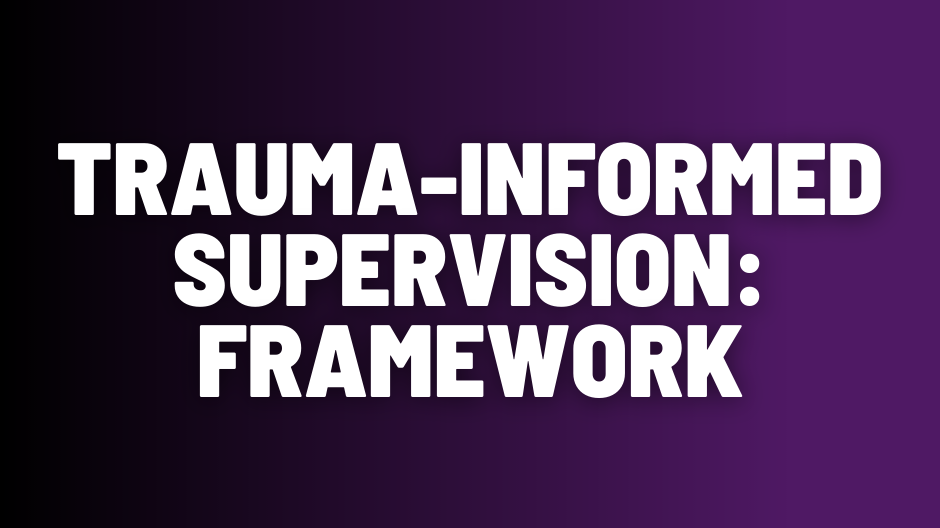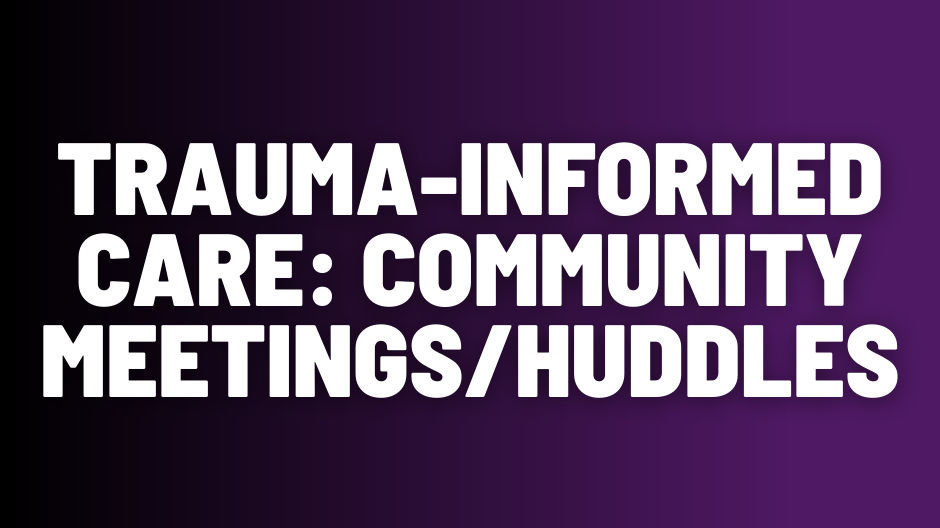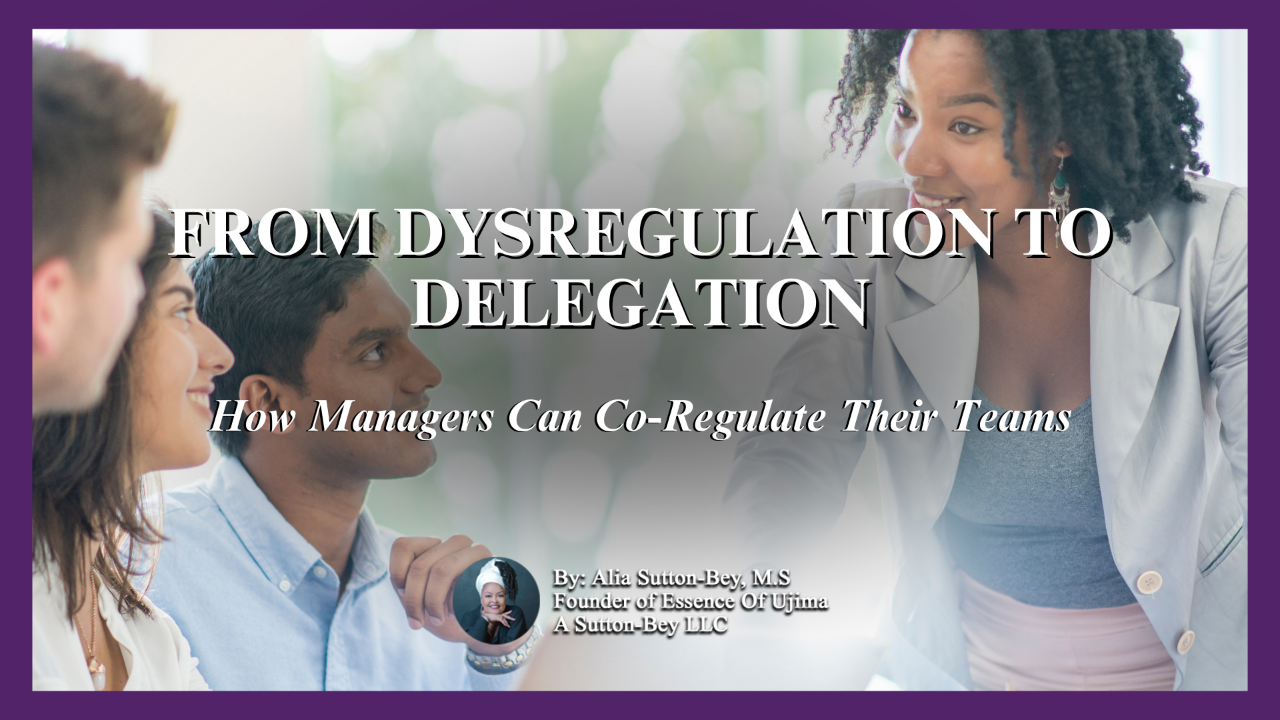Businesses

The Trauma-Responsive Manager
- 3 Workshop Series + 3 coaching sessions with managers between sessions
- Trauma-Informed Supervision
- Trauma-Informed Progressive discipline
- Trauma-Informed Evaluations
- Book a Consultation Today
Trauma-Informed Manager Series

Weekly supervision is the most substantive way to shape organizational culture. Supervision is essential in the workplace because it provides employees with guidance and support, helps to ensure that work is completed effectively and safely, and promotes open communication in a safe space to address concerns. This workshop will provide participants with a tool to aid in systemic changes that promote resilience, support, and collaboration to mitigate toxic stress, burnout, and turnover. The Supervision Framework Tool integrates performance management, self-care, goal setting, and collaboration practices for a trauma-informed approach to supervision. Participants will learn how to practice trauma-informed supervision using a supervision framework tool.

Progressive discipline is a communication process that provides supervisors with the opportunity to give employees constructive feedback to provide the employee the opportunity to take corrective action. In this workshop, participants will learn the five steps to progressive discipline: giving constructive feedback and applying trauma-informed principles.

Employee evaluations or performance appraisals are opportunities for employee growth and development. Too often, they cause anxiety for employees and supervisors. They should have a more collaborative experience that benefits the employee, supervisor, and organization's well-being. In this session, participants will learn how to prepare and conduct employee evaluations and performance appraisals using the six principles of trauma-informed care.

Staff Training and Development Workshops
- Change is Inevitable!
- Do you know what I mean? - Communication and Feedback
- Collaboration and teamwork
- Motivational Interviewing

Organizations often train staff to become trauma-informed, but how do you put the knowledge into practice? These workshops are an excellent way for staff to become trauma-informed practitioners. The training is designed to be engaging and interactive, so participants will be able to learn and have fun at the same time.

In this session, Participants will learn how to incorporate trauma-informed techniques into their organization. Session leaders will facilitate the techniques using behavior rehearsal and role-play techniques. Participants will leave the session with practical ways to incorporate trauma-informed practices into their workforce programs for improved retention and completion outcomes. Techniques are grounded in the six principles of trauma-informed care. Participants will have an increased understanding of how to build community and create safe spaces for growth and development.

A Self-Care Plan is a way to balance the demands of life with the need for mental, spiritual, physical, and emotional replenishment and renewal. You can practice self-care plans regularly and proactively rather than when your emotions are triggered. Strategies created by individuals that are used to keep themselves safe are called safety plans. Safety plans are essential for individuals who have experienced trauma, as they can help prevent future harm and promote healing.

A systems check is a community meeting called by anyone to address issues in a safe, calm environment. The systems check aims to decrease whisper culture, increase accountability, repair communities that have experienced harm and loss, and create group safety. Systems checks are called when harm has been done to the community, a process or system is broken, or when staff/participants are discussing problems with each other. The result of this facilitated meeting should be actionable items that move the organization forward and promote organizational and employee wellbeing.

Community Meetings/Huddles are when staff and community come together to answer these questions – how are you feeling, what is your goal, and whom can you ask for support? This time is a way to build community, remind people that they are part of an interrelated group, and a way to practice goal setting. In this session, participants will understand the purpose of community meetings/huddles and participate in an actual huddle.
What's On The Blog?
Stay current on the best practices in trauma-informed care, organizational wellness, leadership, and DEI.

